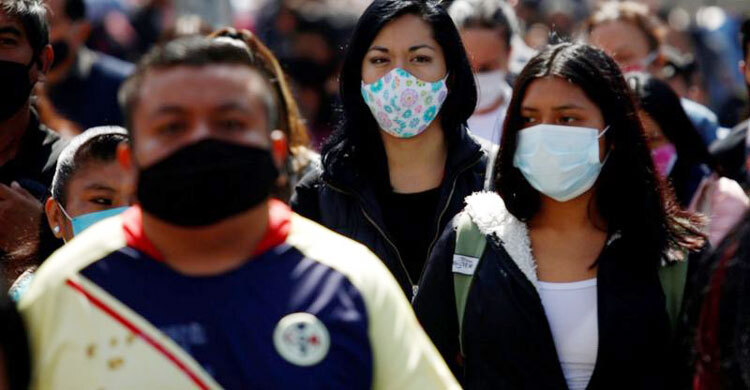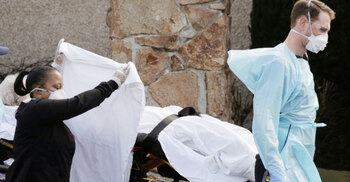Coronavirus: Global coronavirus cases pass 50 million

The total of confirmed coronavirus cases has surged past 50 million following record numbers of new cases in several countries, reports BBC.
More than 1.25 million people have now died after contracting the virus, according to Johns Hopkins University.
But the numbers are thought to be higher because of insufficient testing in many countries.
A second wave of the virus has accounted for a quarter of all cases, Reuters reported.
Europe, with more than 12.5 million cases and 305,700 deaths, is again a hotspot after being the first epicentre of the pandemic earlier this year.
In the US just under 10 million have tested positive. It has seen more than 125,000 cases per day three days in a row.
The states of North and South Dakota have the highest rates of death per capita.
US President-elect Joe Biden has vowed a much more aggressive approach to the pandemic, after Mr Trump repeatedly downplayed its gravity and resisted public health measures including wearing masks and social distancing.
Mr Biden has vowed to name a group of top scientists to his coronavirus task force as early as Monday, wants more testing and plans to call on every American to wear a mask when they are around people outside their own household.
He is likely to take charge when the pandemic is at its peak in the country, former US Food and Drug Administration commissioner Dr Scott Gottlieb says.
Dr Gottlieb told US media that the rate of new infections would probably be starting to decrease by late January, and "the only question is going to be how many people have died in the course of this and how many people have been infected".
In Europe, France on Sunday recorded 38,619 new cases - many less than Saturday's record increase of 86,852 cases. However the health ministry said it had problems collecting data and there would be a correction on Monday.
France also registered 271 deaths, bringing the total to 40,439. The country is just over a week into a second lockdown with the aim of curbing the spread of the virus.
Under the lockdown restrictions, expected to be in place until 1 December, people can only leave their homes to go to work if they cannot work from home, to buy essential goods, seek medical help or to exercise for one hour a day.
In the UK - which has seen the highest number of deaths in Europe - there were 20,572 new cases and 156 new deaths, bringing the total to 49,044 deaths.
However the latest figures from the UK's Office for National Statistics suggest the increase in infections may be stabilising around the UK, with the rate of increase slower than in recent weeks.
India and Brazil have also been hard hit.
Elsewhere:
• Portugal is to bring in a curfew across most of the country from Monday
• Switzerland is deploying 200 army reservists who have had four months of training to its hospitals to help with growing numbers of admissions
• Algeria has extended a curfew already in place in 20 of the country's 48 regions to a further nine areas
• The health of Algerian President Abdelmadjid Tebboune is said by the presidency to be "continuously improving". The 74-year-old, a heavy smoker, has been undergoing treatment in Germany since late last month
• In Japan, gymnasts from four nations competed in Tokyo in an event seen as a trial run for next year's postponed Tokyo Olympics. Competitors were tested daily for the virus and wore masks as they entered the arena, while spectators had their temperatures taken and were misted with disinfectant as they entered







